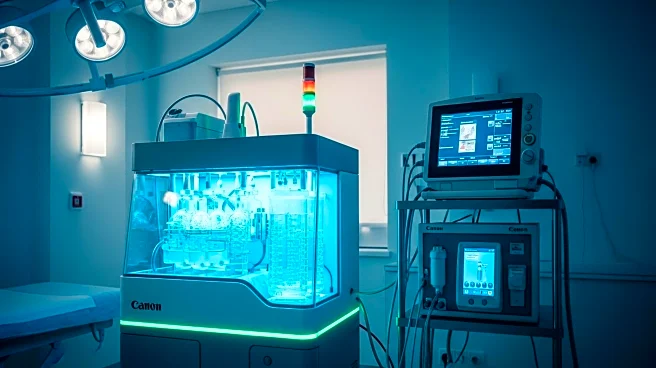What is the story about?
What's Happening?
CTMC, a joint venture between Resilience and MD Anderson Cancer Center, is advancing the integration of industrial-grade biomanufacturing with major clinical centers. This approach aims to ensure commercial-level biopharmaceutical quality standards for therapeutics manufactured for academic center patients. The initiative is gaining interest due to its potential to streamline processes from research through clinical studies, although it is not yet considered a widespread trend. The integration involves using efficient technology and institutional knowledge to expedite therapeutic development and manufacturing, particularly for autologous cell therapies.
Why It's Important?
The integration of advanced biomanufacturing with clinical centers is significant as it promises to enhance the quality and efficiency of therapeutic production. This approach could lead to faster development and approval processes, benefiting patients by providing quicker access to high-quality treatments. It also represents a shift towards more collaborative efforts between biopharmaceutical companies and academic institutions, potentially setting new standards in the industry. Stakeholders in the healthcare and biopharmaceutical sectors stand to gain from improved manufacturing processes and reduced costs, which could lead to more accessible and affordable therapies.
What's Next?
CTMC's model of integrating biomanufacturing with clinical centers may inspire similar collaborations across the industry. As interest grows, other biopharmaceutical companies and academic institutions might adopt this approach, potentially leading to broader changes in therapeutic manufacturing standards. Continued partnerships, like the one with Syenex to enhance gene delivery, could further improve scalability and efficiency. The success of this model could influence regulatory practices and encourage more streamlined approval processes for new therapies.
Beyond the Headlines
The ethical implications of integrating biomanufacturing with clinical centers include ensuring patient safety and maintaining high standards of care. As this model becomes more prevalent, it may prompt discussions on the balance between commercial interests and patient-centered care. Additionally, the collaboration between industry and academia could lead to innovations in therapeutic development, potentially transforming the landscape of personalized medicine.
















